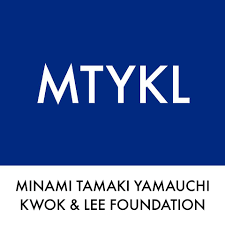 A photographer and filmmakers connect the present to moments in the past captured powerfully in iconic photos of the Japanese American incarceration during WWII. Photojournalist Paul Kitagaki Jr. seeks out the people photographed in War Relocation Authority photos of that period. His portraits, echoing those of decades ago, reconnect these people to their past, bringing their stories forward. His project, an exhibition Gambatte! Legacy of an Enduring Spirit, is now shared in a newly-released book, Behind Barbed Wire. Three Boys Manzanar, a short but powerful documentary reunites three boys incarcerated at Manzanar who became the faces of injustice when their photograph was taken by imprisoned Issei photographer Toyo Miyatake in 1944. Filmmakers Akemi Ooka and Preeti Mankar revisit the site with the three men seventy years after the original image was taken, making unexpected discoveries that startled everyone involved with the project. Book sales and signing to follow in the gallery.
A photographer and filmmakers connect the present to moments in the past captured powerfully in iconic photos of the Japanese American incarceration during WWII. Photojournalist Paul Kitagaki Jr. seeks out the people photographed in War Relocation Authority photos of that period. His portraits, echoing those of decades ago, reconnect these people to their past, bringing their stories forward. His project, an exhibition Gambatte! Legacy of an Enduring Spirit, is now shared in a newly-released book, Behind Barbed Wire. Three Boys Manzanar, a short but powerful documentary reunites three boys incarcerated at Manzanar who became the faces of injustice when their photograph was taken by imprisoned Issei photographer Toyo Miyatake in 1944. Filmmakers Akemi Ooka and Preeti Mankar revisit the site with the three men seventy years after the original image was taken, making unexpected discoveries that startled everyone involved with the project. Book sales and signing to follow in the gallery.
Background
Photographer and videographer Paul Kitagaki Jr. has traveled the world covering natural and human-caused disasters, documenting the lives of everyday Iraqis living under Saddam Hussein, Mexico City residents digging out of a deadly earthquake, Asian factory workers laboring for pennies to produce high-end athletic shoes for the U.S. market and international athletes competing for gold at eight different Olympic Games. Kitagaki’s work has been honored with dozens of photo awards, including the Pulitzer Prize, and been nominated for Emmy awards. He’s been published in news outlets worldwide, including National Geographic, Time, Smithsonian Magazine, Sports Illustrated, Stern, People, Mother Jones, the Wall Street Journal, the New York Times, the Los Angeles Times and the Washington Post, as well as in his home newspaper, The Sacramento Bee.
Behind Barbed Wire – As he was searching through photos at the National Archives in 1984, Paul Kitagaki, Jr. found a photo taken by famed documentary photographer Dorothea Lange of his grandparents and father preparing to board a bus in Oakland, Calif., enroute to a World War II incarceration camp. Through slow and painstaking research, Kitagaki has spent the last 13 years locating and winning the trust of the families who lived through the incarceration, documenting their stories of survival and inner strength to overcome injustice, racism, and wartime hysteria. Kitagaki’s work is now the focus of a national traveling exhibition, Gambatte! Legacy of an Enduring Spirit, that explores the legacy of an enduring spirit as Japanese Americans triumphed over adversity in the WWII incarceration camps. Fittingly, the work is also featured in a permanent installation at the site of his father’s family’s initial incarceration, the Tanforan Assembly Center for Japanese Americans, now the San Bruno BART station.
Three Boys Manzanar is a short film about the reunion, seventy years later, of three men interned at Manzanar as children, incarcerated by circumstance and bound by history. The iconic photo, “Boys Behind Barbed Wire” by Toyo Miyatake, is a heartbreaking one, juxtaposing the innocence of three young boys and the ugliness of a guard tower, set against an expansive backdrop of stunning beauty. The boys, now in their 80’s, had not been together since leaving Manzanar in 1946. The film is directed by Preeti Mankar Deb with narration by Akemi Ooka.
Preeti Mankar Deb (Director/Producer) is an award winning documentary filmmaker who believes in the power of video to inform and connect people, and motivate them to make a difference. Her experience in journalism and documentary has taught her that every single person has a unique and engaging story – it just needs to be told in the right way. Preeti is currently working on a community video art project to further explore this theme. She has a master’s degree in documentary film and broadcast journalism from NYU. After graduating from NYU, she worked in New York on documentaries for public television. In 2008, she moved to India and started an independent film company, 517 Productions, to specialize in non-fiction content. Under this label she has produced, directed and edited documentaries, corporate films, films for nonprofits and Public Service Announcements for TV. She also taught video and documentary film. She is currently the creative producer for Micro-Documentaries, a purpose driven film company that specializes in 2-4 minute films.
Akemi Ooka (Executive Producer and narrator) is a third/fourth generation Japanese American and has a Ph.D. in Chemistry from the University of California, Los Angeles. She is new to the world of documentary filmmaking, but has been impressed by the power of storytelling and documentary film as a means to humanize complex subject matter and make it relevant to a broad audience.
Akemi, together with her three siblings, is honored by the privilege of bringing her father’s story of Japanese American internment to life, and has traveled across the U.S. to discuss the film. From these conversations, it has become clear that not only must this history be taught, but the preservation and archiving of stories like her father’s must be priorities of future generations, so that we may all remember and learn from this period in American history.




